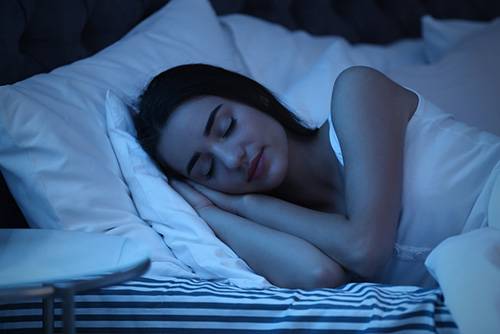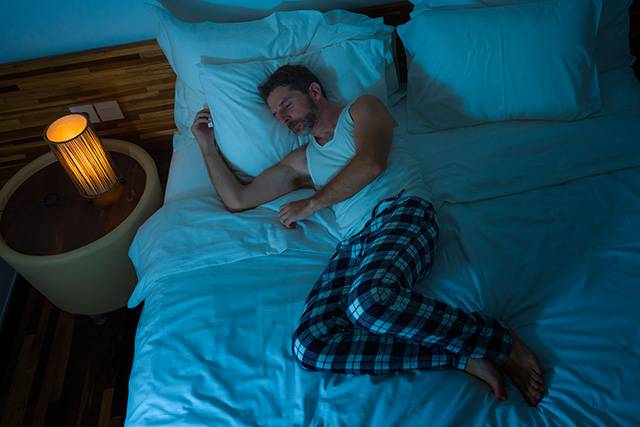Best Books on Sleep

It’s 10:30 p.m. You brush your teeth, enter the bedroom, and get beneath the covers. You close your eyes, roll onto your side…roll onto the other…repeat. Try as you might, you just can’t seem to sleep.
2 a.m. rolls around—no it’s 4 a.m. now—and guess what? You haven’t slept a wink and “hitting the hay” has turned into “hitting your pillow in frustration.”
Been there, done that.
| Rank | Product | Highlights |
| #1 |  Why We Sleep: Unlocking the Power of Sleep and Dreams Why We Sleep: Unlocking the Power of Sleep and Dreams
| Author: Matthew Walker, PhD
Publication Year: 2018 |
| #2 |  Body on Fire Body on Fire
| Author: Monica Aggarwal, Jyothi Rao
Publication Year: 2020 |
| #3 |  The Sleep Solution: Why Your Sleep is Broken and How to Fix it The Sleep Solution: Why Your Sleep is Broken and How to Fix it
| Author: W. Chris Winter M.D.
Publication Year: 2018 |
| #4 |  The Promise of Sleep The Promise of Sleep
| Author: William C. Dement
Publication Year: 2000 |
| #5 |  The Sleep Book: How to Sleep Well Every Night The Sleep Book: How to Sleep Well Every Night
| Author: Dr. Guy Meadows
Publication Year: 2014 |
| #6 |  Get Your Sleep On Get Your Sleep On
| Author: Christine Lawler
Publication year: 2017 |
If you’re struggling to sleep at night or feel like your time spent sleeping isn’t benefitting you like it should, it might be time to consult a professional. While you should see a doctor or specialist if your sleeplessness persists, you should consider picking up a book on sleep first. Learning more about what sleep is and how it works is a huge step in the right direction, and there are many qualified, knowledgeable authors with some pretty impressive books in their resume. In this article, we’ll talk a little bit about sleep and then introduce you to our top five picks for the best sleep book.
Table Of Contents
- 4 Stages of Sleep
- Effects of Sleep on Brain Health and Cognitive Function
- — Brain Plasticity & Overall Health
- — Memory
- — Emotional Health
- — Hormone Regulation
- Is dreaming a sign of good sleep?
- Tips for Improving Your Sleep
- What to Look for in a Sleep Book
- The Best Books on Sleep
- 1. Why We Sleep: Unlocking the Power of Sleep and Dreams
- 2. Body on Fire
- 3. The Sleep Solution: Why Your Sleep is Broken and How to Fix it
- 4. The Promise of Sleep
- 5. The Sleep Book: How to Sleep Well Every Night
- 6. Get Your Sleep On
- Conclusion
4 Stages of Sleep
There are four stages of sleep that the average person cycles through several times per night. These are broken down into non-REM sleep and REM sleep (with REM referring to “rapid eye movement”). The cycle looks like this:
Non-REM Sleep ; Non-REM Sleep ; Non-REM Sleep ; REM Sleep
With each of the three non-REM stages, the brain waves slow further down, the body becomes more relaxed, and one falls into a deeper sleep. Scientists believe that the non-REM stages—especially the third one—are when the body takes time to repair itself. This is also when the body is most at rest during the night.

Once a person enters REM sleep, their brain actually speeds up and becomes more active; their body is paralyzed, but their eyes move back and forth rapidly. The REM stage is when a person tends to have the most vivid dreams.
Effects of Sleep on Brain Health and Cognitive Function
Have you ever wondered why sleep is so important? (Because let’s be honest: We’re all tempted to watch one more episode, read one more chapter, or pour one more glass of wine before bed…right?)
As mentioned earlier, there are several things that happen in your brain during sleep. As you go through each stage of your sleep cycle, your brain and body undergo a variety of changes and perform various functions that are beneficial to your well-being.

— Brain Plasticity & Overall Health
“Brain plasticity” refers to the brain’s ability to change itself through learning and experiences. Sleep is thought to foster this phenomenon, as neurons in the brain form connections and reroute/reorganize themselves while we’re asleep.
Another thing that happens while we sleep is the removal of toxins from the brain. These toxins build up as we go about our day and are released via the glymphatic system as we sleep each night.
— Memory

Sleep also plays a role in memory. This is because the hippocampus (responsible for the processing and storage of memories) is active while we sleep. By ensuring we get enough sleep each night, we’re allowing the hippocampus to do its job well which can lead to greater memory and information retention.
— Emotional Health
Another part of the brain that’s active during sleep is the amygdala, which is responsible for controlling our fear response and other emotions. One of the best ways to keep the amygdala functioning optimally is to get enough sleep each night.

— Hormone Regulation
There are three essential hormones that getting enough sleep can help regulate:
- Ghrelin – Makes you feel hungry
- Leptin – Helps you feel full upon eating
- Insulin – Aids cells in the processing of glucose
Is dreaming a sign of good sleep?
Yes! Because most of our dreaming occurs in the final stage of sleep (REM), having dreams indicates that you’re staying asleep long enough to reach this stage. There are a couple of things you should keep in mind, though:

- It’s normal to forget our dreams upon waking up. Forgetting a dream doesn’t necessarily mean your sleep is poor.
- Even if you do remember dreams, you might want to see a doctor or specialist if you often struggle to fall asleep, wake up throughout the night, or tend to feel sleepy during the day.
Tips for Improving Your Sleep
While a good night’s sleep may come naturally to some people, not all of us fall into this category… So, what can we do to improve the length (or quality) of our sleep?
Set a regular bedtime

Perhaps because our mind and body follow a circadian rhythm (a 24-hour cycle that helps to regulate our functions), having a set bedtime can help us sleep better. Over time, this will tell our mind when we need to sleep and thus make the process feel more natural. An added bonus is that going to bed at the same time each night can help us wake up at the same time, too!
Unwind before your head hits the pillow

Do you ever find your thoughts racing the second you lay down to sleep? While a particularly stressful day can do this to anyone, it might be cause for concern if this happens to you often. One of the best things you can do to improve your sleep is to unwind before hitting the hay. This could mean reading a couple chapters of that new fantasy novel you bought, watching a funny movie, or even engaging in some type of creative activity such as coloring or writing. Activities like this can turn your mind to other, less stressful things before you try to sleep.
Avoid caffeine or alcohol before bed

Unwinding is good…boozing it up right before bed is not so good…and a cup of coffee might just be the worst possible thing you could do. Both caffeine (a stimulant that counteracts sleep-inducing hormones) and alcohol (a depressant that causes the sleep cycle to be disrupted) are known to have a negative impact on the length and quality of one’s sleep.
Exercise every day

Exercise provides a range of benefits for both your body and mind, including the ability to get a better night’s sleep. This may be due to a few different factors. For example, exercise can make you feel more tired and thus more quickly induce sleep; because the body repairs itself during non-REM sleep, exercise may help you sleep more soundly during these stages. In addition, exercise can help reduce stress which can, in turn, help you sleep better at night. Experts recommend getting at least 20-30 minutes of exercise per day, several days a week.
Limit lights, sounds, and other distractions

Excessive light or sound in the room where you’re sleeping can make it difficult to fall asleep (or to stay that way throughout the night). Phones, computers, and even the traffic outside are common culprits of these lights and sounds, so you should do what you can to limit their effect on your sleep.
Try turning your phone over so that the screen is facing down, lower or turn off your phone’s sound, remove any laptops or tablets from your room, and consider purchasing ergonomic earplugs if noises from outside frequently disturb your sleep.
What to Look for in a Sleep Book
Now that we’ve done some talking about sleep, let’s discuss today’s main topic: sleep books. There are plenty of books on sleep out there, so how can you know which ones are worth their salt? Below are a few factors you should consider before purchasing one for yourself.
Author Credentials
Anytime you’re thinking about buying an educational book, you need to research and consider the credentials of the author(s). Does this person have the knowledge and experience to produce a factual, rewarding book on the topic at hand? Here are a few things you should look at when studying up on an author.
Educational Background
Did the author go to school? Where? Did they attain a degree or diploma? In what field(s) of study?
In this case, you should make sure the author studied and received a degree/diploma in some subset or branch of somnology—and preferably from a good school. You can almost always find this information on the book jacket or any webpage where the book is presented (such as an Amazon listing).
Years of Experience
Another factor to consider is how many years of related experience the author has. For example: If they studied neurology, how many years have been a practicing neurologist? The more years, the better!
Professional Accomplishments
Has the author won any sort of relevant award or been recognized by the scientific community for their achievements/research? If not, are there any other accomplishments under their belt that make them stand out from the crowd?
Previous Works
Has the author written other books, articles, or research papers on the topic of sleep? Were they well-received or called out for being factually incorrect? This can tell you a lot about the author and his/her knowledge on the topic.
Publication Year
The more recent its publication year, the more likely it is that the book will contain information and analyses that fall in line with modern research, studies, and knowledge regarding the topic.
As a rule of thumb, books published more than five years ago are considered “old.” The information presented in these books may still be relevant, but you should keep in mind that our knowledge on the topic of sleep is always evolving; newer books are likely to present more up-to-date information and facts from recent studies and findings.
Acclaim / Criticism
Has the book been critically acclaimed, or has it received a good deal of negative feedback? It’s a good idea to do your research and see what experts in the field (not to mention general book reviewers) have said about the book. You can also read book reviews on websites like Amazon or Goodreads to see what other readers thought.
Topic(s)
The book you purchase should discuss the sleep-related topic(s) you’re most interested in.
Do you want to learn more about what happens in your brain while you sleep? Or maybe you’re curious about sleep’s effect on the body itself? And what about dreams…or how to sleep better at night?
While most books on sleep will cover multiple subtopics, they tend to focus more on one or two specific aspects.
The Best Books on Sleep
Now that you know a bit more about sleep and what to look for in a good sleep book, it’s time to go over our top picks!
1. Why We Sleep: Unlocking the Power of Sleep and Dreams
Author: Matthew Walker, PhD
Publication Year: 2018

Editor’s Pick
Why We Sleep is one of the most critically acclaimed sleep books on the market today. People love this book. It has been translated into several languages—German, Portuguese, French, Italian, and Japanese—and some of the most brilliant minds *cough Bill Gates cough* have expressed their appreciation for this book.
Matthew Walker, PhD, explores the different reasons that people sleep as well as the numerous benefits that sleep provides. He walks the reader through each stage of the sleep cycle, discusses the various processes and functions that take place throughout the brain during sleep, and even presents some (quite disturbing) imagery regarding what happens when we don’t sleep.
This is a fascinating read and one that might just shift your attitude toward sleep in a positive direction.
2. Body on Fire
Author: Monica Aggarwal, Jyothi Rao
Publication Year: 2020

Runner Up
Body on Fire, written by Monica Aggarwal (cardiology, echocardiography, and nuclear cardiology board certification) and Jyothi Rao (20+ years of clinical experience and internal medicine board certification), is a unique book focusing on inflammation and its root causes. The authors mainly discuss the role that diet and general lifestyle play in this phenomenon, though the book also talks about the importance of sleep in particular. Applauded by such names as Tatyana McFadden (Russian-American Paralympic athlete) and Barbara Oakley, PhD, this is the perfect read for anyone looking to learn more about the body and how to treat it well!
3. The Sleep Solution: Why Your Sleep is Broken and How to Fix it
Author: W. Chris Winter M.D.
Publication Year: 2018

Best for Athletes
The Sleep Solution is—you guessed it—a solution-oriented book designed to help those suffering with insomnia get a better night’s sleep. The author has over 24 years of experience in the field of neurology and has been helping athletes with issues related to poor sleep for a long time. In this book, he talks about a number of hot topics related to sleep: how it works, why it’s important, and how to sleep better without the use of sleeping pills. The author is applauded for his innovative and research-based approach to better sleep, making this a fantastic read for anyone who’s serious about tackling their insomnia once and for all!
4. The Promise of Sleep
Author: William C. Dement
Publication Year: 2000

Best Practical Tips
First published in 2000, The Promise of Sleep is an older book but is still considered an authoritative—not to mention groundbreaking—read on the topic of sleep. The author is known for having founded the Stanford University Sleep Research Center and has been in the game for a long time. His expertise is showcased in this monster of a book (512 pages), in which he discusses the dangers of not sleeping enough and the invaluable benefits sleep provides…if only we would accept them! The book also includes self-tests and practical tips on how to get better sleep in a variety of contexts.
This is an exciting read that spearheaded a greater focus on sleep in the medical and scientific communities—and it may just give you the insight you need to start getting better-quality sleep.
5. The Sleep Book: How to Sleep Well Every Night
Author: Dr. Guy Meadows
Publication Year: 2014

Best Holistic
Dr. Guy Meadows is the founder of The Sleep School and has been working to treat insomnia through ACT (Acceptance and Commitment Therapy) for the past eight years. In The Sleep Book, he seeks to help the reader overcome insomnia using ACT and provides more holistic, natural solutions to the issue. Dr. Meadows believes that sleep medication is not a satisfactory long-term solution, so he introduces and outlines methods that can improve your sleep—and reduce your sleep anxiety—for the rest of your life without the health risks. This is the perfect book to dive into if you’re tired of being sleepy all the time and hope for a future filled with comfy pillows and plenty of sleep.
6. Get Your Sleep On
Author: Christine Lawler
Publication year: 2017

Best for Parents
One of the most difficult parenting tasks is maintaining a healthy sleeping schedule while also providing for the baby and protecting the parent-child relationship. Author Christine Lawler talks about how that is all possible, in a book that’s focused on healthy sleeping of both the baby and the mother.
The book is centered around the idea that parenting doesn’t work the same for everyone, so the author provides three solutions of how to deal with the matter, with at least one of them bound to be applicable in your case. You will also discover a 14-day plan that helps put the baby and the mother on the right sleeping schedule, without mommies having to worry about losing attachment with their little ones.
Conclusion
Sleep is a crucial element of our lives, and getting enough of it is not only beneficial but also necessary. Whether you’ve been struggling with restless nights or just want to learn more about your brain on sleep, we hope one of these books on sleep will meet you where you’re at and provide you with the insight you need. Sweet dreams!
Photo credit: Tirachard Kumtanom/Shutterstock; bmf-foto.de/Shutterstock;
NPS_87/Shutterstock; Krakenimages.com/Shutterstock; grayjay/Shutterstock;
Gorodenkoff/Shutterstock; New Africa/Shutterstock; Kostiantyn Voitenko/Shutterstock
The topic of sleep is a complex one, so it’s understandable if you have a few questions. Before we talk about our top sleep book picks, how about some answers to the most frequently asked questions on sleep?
